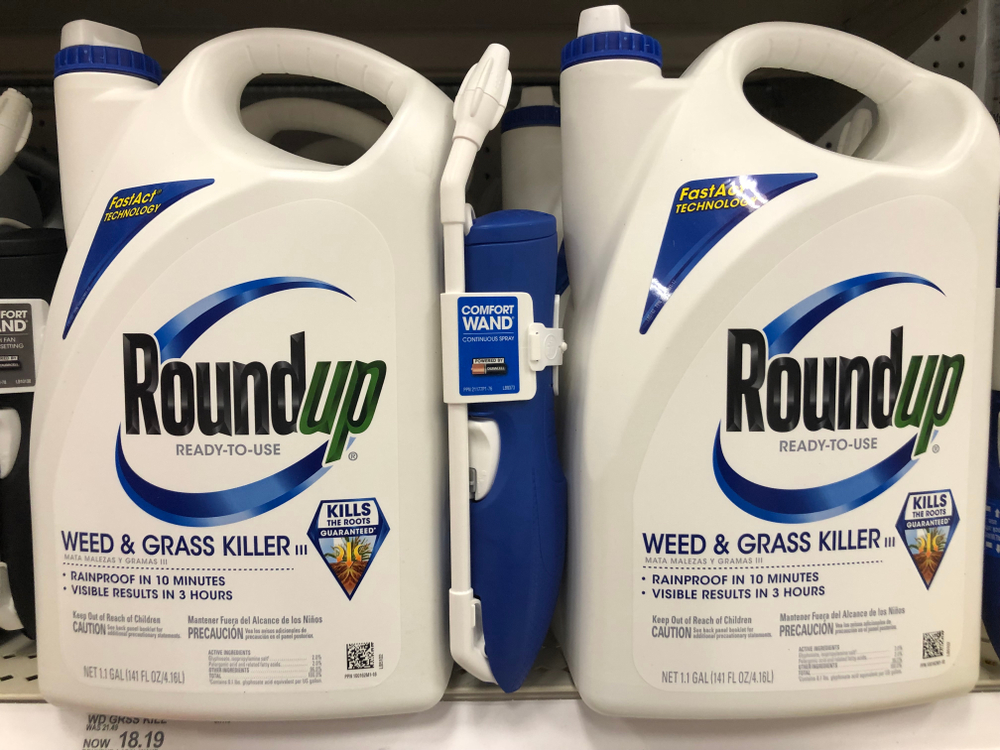For decades, gardeners, landscapers, and farmers have relied on Roundup products to keep weeds out of their gardens, off their properties, and away from their crops. Introduced by the manufacturer Monsanto in 1974, and now owned by Bayer Corporation, Roundup is considered one of the most recognized herbicides in the world.
However, studies have found that glyphosate, the active ingredient in Roundup, is also linked to non-Hodgkin lymphoma and other adverse health conditions. Since 2015, the World Health Organization (WHO) has identified glyphosate, as a “probable carcinogen” to humans. Despite WHO’s designation, Roundup’s sales continued until 2023 when Bayer officially ended the sale of its products with glyphosate to residential users and limited products containing the chemical only for professional and agricultural use.
In the last several years, thousands of individuals who developed non-Hodgkin lymphoma (NHL) have filed Roundup lawsuits against Monsanto and Bayer alleging that the manufacturers failed to warn them about the associated dangers of glyphosate. There are still victims, many suffering from other illnesses different from NHL, who have not yet come forward.
It can take years for individuals exposed to glyphosate to realize they are sick, and it is crucial for those who frequently used Roundup containing glyphosate, as well as anyone who lived, worked, or visited properties where Roundup is regularly used recognize the dangers associated with exposure and what to look for.
Illnesses Associated with Glyphosate Exposure
Non-Hodgkin lymphoma (NHL): Dozens of studies on glyphosate have found a significant link between the herbicide and non-Hodgkin lymphoma including a 2019 meta-analysis of animal and human studies, which consolidated the efforts of several studies on the issue.
NHL starts in the immune system and results in abnormal growth of white blood cells, forming tumors throughout the body. Unfortunately, non-Hodgkin lymphoma has only an overall 73 percent five-year survival rate,
Symptoms: Swollen lymph nodes found in the neck, armpit, or groin area, night sweats, fatigue, and unexplained weight loss. Someone who has NHL might also have an enlarged spleen.
Diagnosis and treatment: Typically, a lymph node biopsy will be performed along with imaging including a CT Scan or an MRI to see if there are signs of lymphoma cells elsewhere in the patient’s body.
Patients with non-Hodgkin lymphoma are treated with chemotherapy, immunotherapy, radiation, and stem cell transplants.
Parkinson’s disease and other neurological disorders: In recent years, neurological illnesses like Parkinson’s disease have been on the rise with researchers suggesting a link to “environmental toxicants,” like glyphosate which can cause damage to the brain’s ability to process dopamine.
Parkinson’s disease is a degenerative condition caused by the breakdown of nerve cells. It worsens over time. Within ten years of a diagnosis, many who are inflicted with the disease are unable to walk or stand and some have dementia.
Symptoms: Loss of muscle control, uncontrollable tremors, stiffness while walking, and depression.
Diagnosis and treatment: A Parkinson’s disease diagnosis is most often made by a neurologist trained in nervous system conditions who performs a neurological exam along with a physical exam and analysis of the patient’s medical history. A dopamine transporter scan, or DaTscan, as well as other imaging tests, such as an MRI or PET scan, are also used during the process to rule out other disorders.
There is no cure for Parkinson’s disease, however, patients have done well with certain medicines that are used as a treatment to manage problems with walking, movement, and tremors, including levodopa-based medicines that increase or substitute for dopamine. Usually, people take levodopa along with another medication called carbidopa.
Respiratory issues: According to the Agency for Toxic Substances and Disease Registry, the longer the exposure to glyphosate and the larger the amount of the chemical is absorbed into the body, the more likely a person will develop “respiratory effects.” Illnesses involving the lungs and respiratory system associated with glyphosate range from asthma to chronic obstructive pulmonary disease (COPD).
Symptoms: Symptoms may start with shortness of breath, a cough, mucus production, and wheezing. For later stages of respiratory illnesses, more severe symptoms can include weight and muscle mass loss, anorexia, and an increased risk for depression or anxiety.
Diagnosis and treatment: Doctors typically begin diagnosing respiratory and breathing issues with a physical exam and conducting tests, including pulmonary function testing (PFT). One of the most used elements of PFT is a lung function test known as spirometry to measure how much air a person breathes out and how fast. The test can gauge how severe the respiratory issue is and can diagnose illnesses like COPD at an early stage.
The treatment varies, ranging from medications including decongestants, bronchodilator sprays, and inhaled steroids, to oxygen therapy and pulmonary rehabilitation programs.
Other diseases: As mentioned, these are just some of the illnesses associated with exposure to glyphosate. Others include thyroid disease, endocrine system (hormone) disruption, male and female reproduction/fertility issues, developmental abnormalities in children, liver disease, celiac disease, inflammatory bowel disorder and other gut problems, Alzheimer’s disease, autism, and attention deficit hyperactivity disorder.
Monitor for Glyphosate Exposure Symptoms
The sooner a person can identify they have been exposed to glyphosate, the stronger the chance they can receive successful treatment.
Those who use herbicides should always be on the lookout for signs of exposure, ranging from nausea, dizziness, and diarrhea to even more severe signs including trembling, breathing difficulties, and muscle coordination issues.
At the same time, they should protect themselves and others by advocating for healthier alternatives in plant management. Although the size of the property factors into how farms, landscapes, and gardens are cared for, there are organic alternatives to the dangerous chemicals, including acid-based herbicides (often vinegar-based), corn gluten, and essential oils.
In the last six years, since the first Roundup lawsuit was filed against Bayer and Monsanto, the makers have lost billions of dollars in settling cases. If you have been diagnosed with a serious illness like those mentioned above and you have a history of glyphosate exposure from Roundup, you should consider taking legal action now. Contact a Roundup lawyer right away to assess your eligibility for a claim.




